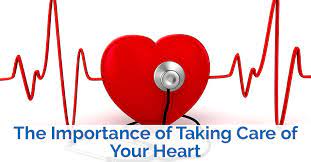

Introduction:
Heart Disease is the leading cause of death in America, responsible for over 650,000 deaths every year. Many of these cases can be prevented by taking simple steps to care for your heart. This blog post will discuss the key lifestyle choices that can help prevent heart disease. Whether you are at high risk due to family history, age, or existing health conditions, or if you simply want to live a healthier life, these tips can benefit everyone.
Personal Lifestyle Changes:

- Stop Smoking:
Cigarette smoking is one of the major risk factors for heart disease. Cigarette smoke damages the lining of blood vessels, leading to plaque buildup and arteries narrowing. This increases the risk of heart attack, stroke, and other cardiovascular diseases. Quitting smoking can significantly reduce the risk of heart disease. Seek support from friends, family, or a healthcare professional if you need help quitting.

2. Reduce Blood Cholesterol:
High cholesterol levels can contribute to the buildup of plaque in the arteries, which can lead to heart disease. Reducing your intake of saturated and trans fats and increasing the consumption of fruits, vegetables, and whole grains can help lower your cholesterol levels. If you have high cholesterol, your doctor may prescribe cholesterol-lowering medications.

3. Exercise:
Physical activity is crucial for maintaining a healthy heart. Regular exercise can help lower blood pressure, reduce cholesterol levels, and improve overall heart health. Aim for at least 150 minutes of moderate-intensity exercise or 75 minutes of vigorous-intensity exercise per week. Find an activity you enjoy, such as walking, swimming, or cycling, and make it a regular part of your routine.

4. Lower your Blood Pressure:
High blood pressure, or hypertension, is a major risk factor for heart disease. Lifestyle changes, such as regular exercise, a healthy diet, and reduced salt intake, can help lower blood pressure. If these measures are not enough, your doctor may recommend medications to help control your blood pressure.

5. Manage Stress:
Chronic stress can contribute to high blood pressure, heart disease, and other health problems. Finding healthy ways to manage stress, such as exercise, meditation, or spending time with loved ones, can help reduce your risk of heart disease. If you are struggling with anxiety or depression, seek support from a mental health professional.

Conclusion:
Taking care of your heart is vital for living a long, healthy life. Simple lifestyle changes, such as quitting smoking, reducing cholesterol levels, exercising regularly, lowering blood pressure, and managing stress, can significantly impact your heart health. By making these changes, you can reduce your risk of heart disease and enjoy a healthier, happier life. Don’t wait until it’s too late to start taking care of your heart. Begin today and reap the benefits for years to come.
